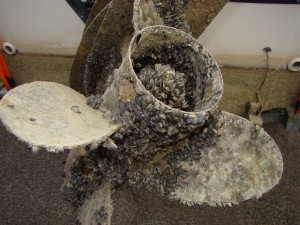Utah Division of Wildlife Resource’s most-wanted has a new leader threatening Utah lakes with chaos. This new menace is not a fish or animal predator, it doesn’t even have eyes.
The quagga mussel is a freshwater mussel that has become a major concern for many major lakes across the United States. The mussels are extremely invasive and breed quickly. The mussels collect on the bottoms of lakes and on lake or reservoir infrastructure and damage everything in their path.

The mussels first reared their sharp, ugly heads in 2007 when researchers found quagga mussels in Lake Mead. The mussels have spread to other lakes and have become a major concern at Lake Powell.
Candace Hutchinson, of the Utah Division of Wildlife Resources, is an expert on quagga mussels and has been working tirelessly to educate Utah boaters on the impact this species can have on Utah waters and how they can help to mitigate that effect.
“The mussels are terrible for both the environment and for recreation,” Hutchinson said. “They fill up irrigation and water pipes and hurt water supplies for citizens. They attach to beaches and are sharp — so that’s not fun to be around. They consume the food the fish depend on and can hurt the ecosystem.”
While completely eradicating the quagga mussels is an almost impossible task, Hutchinson tells boaters they can do a lot to help stop the spread of the species throughout the state. “The best thing you can do is to make sure that your boat is clean, drained and dried,” Hutchinson said. “Also pay attention to what waters are infected.”
According to DWR’s website, boaters should clean their boats of all water, mud, plants and mussels as soon as possible after leaving the water. The boats should be drained and thoroughly dried after cleaning. They must be dry for a specific amount of time depending on the season. In the summer the dry time is seven days.
Carrie Jo Cobb is a DWR employee who explained that the state is providing a simpler way to expedite this process. “For those that don’t want to wait the dry time, you can come see us here at the dock, and we have a decontamination station that flushes your system with 140 degree water that will kill the mussels within 10 seconds of contact,” Cobb said. These decontaminations are free of charge.
For more information on quagga mussels and containment, visit www.stdofthesea.com.




